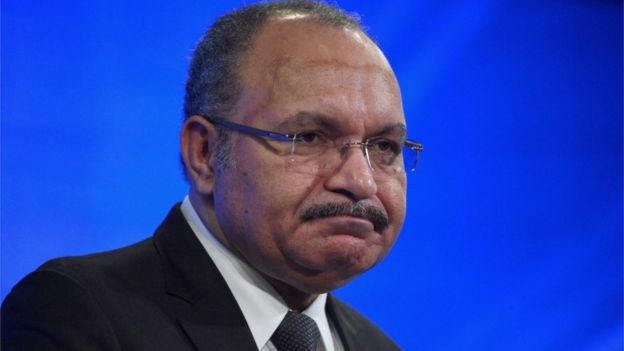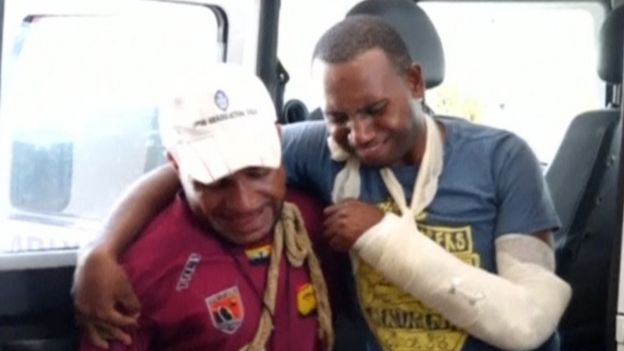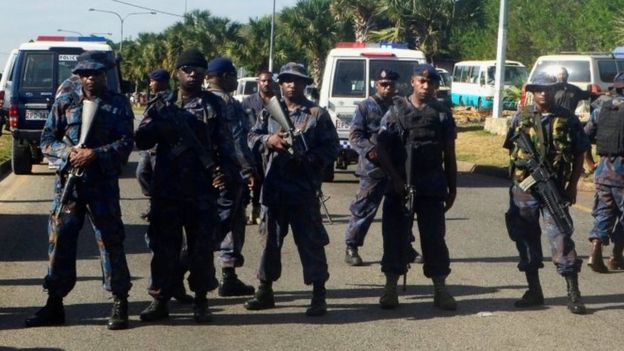The University of Papua New Guinea has obtained an injunction to stop protests after a number of people were hurt when a demonstration turned violent.
Police opened fire as students were trying to march from their campus in the capital, Port Moresby, towards parliament.
Police say 23 people were hurt.
The students want Prime Minister Peter O'Neill to stand down to answer corruption allegations, which he denies.
Mr O'Neill is also facing a possible no-confidence motion in parliament.
'Fight will continue'
On Thursday, protest leader Noel Anjo told Reuters news agency that the students' demonstrations would continue despite the ban.
"We're not going to give up," he said. "The students are not going to give up until and unless the prime minister resigns or surrenders himself to police and is arrested and charged. This fight will continue."
The court order also bans students from boycotting classes, which they have been doing for the past five weeks.
A statement by Mr O'Neill's office said an investigation was under way to determine to what extent the protests were "promoted by individuals outside the student body".
"The inquiry will also seek to uncover the source of external funding that has underwritten student protest in recent weeks," the statement said.
What are the students protesting about?

Mr O'Neill has rejected calls for his resignation
In 2014 a warrant was issued for Mr O'Neill's arrest, in an investigation into whether he authorised millions of dollars in illegal government payments to a large legal firm.
He has consistently evaded the warrant with court orders, and disbanded the anti-corruption watchdog.
Thousands of UNPG students have been boycotting classes for five weeks, demanding he resign. Classes were officially suspended last month.
What has Peter O'Neill said?
In May, Mr O'Neill responded to a petition from students saying that he would not be resigning.
He said the corruption allegations against him were of "questionable political intent", as reported by ABC.
Why is PNG so turbulent?
Papua New Guinea was ranked one of the most corrupt countries in the world in 2012 by Transparency International.
According to the World Bank, 70% of the country, the most linguistically diverse in the world, lives in poverty.
The country's higher education minister, Malakai Tabar, welcomed the injunction, Australia's ABC News reported.

A number of people were reported injured during the clashes
"The overwhelming majority of students simply want to go to class, sit their exams and proceed to the next semester," he said, while blaming the violence on "thuggery".
Police commissioner Gari Baki said 23 students were injured, four seriously, local news site EMTV reported. He said an investigation would determine if they were shot.
A handful of police officers were also injured, he added.
Footage obtained by the BBC appeared to show a large crowd of students at the campus running away as shots and tear gas were fired.
Images circulating on social media also showed injured students being carried away.
Opposition MPs had told parliament on Wednesday that four people were killed, but the government and hospitals have denied there were any deaths.
Source: bbc.com


